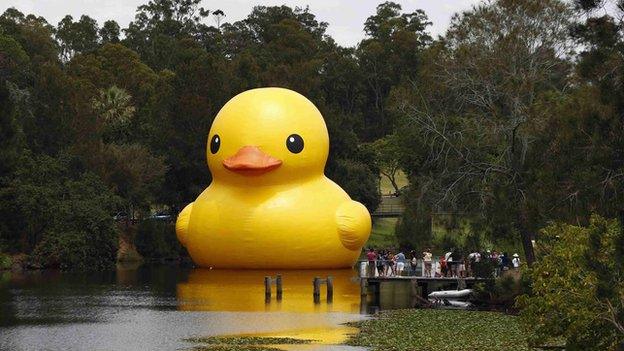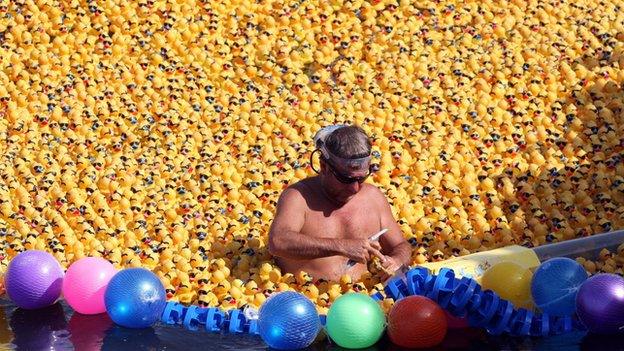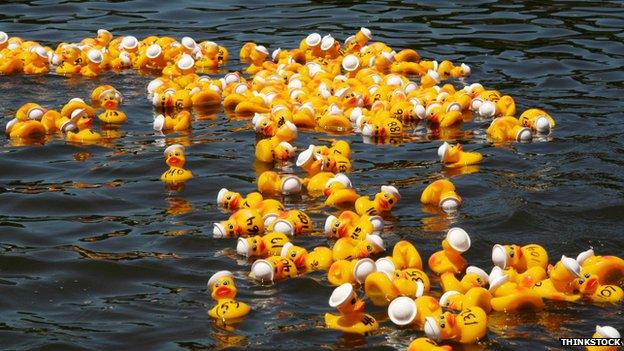The strange subculture of rubber duck racing
- Published

The governor of Wisconsin is due to set into law a bill which will legalise rubber duck racing in the US state. But what is this strange subculture of bath toy racing, asks Vanessa Barford.
For most people, the only place they are likely to have seen a small, yellow rubber duck is in a child's bath.
Others may have seen a giant version of the popular bath toy - designed by Dutch artist Florentijn Hofman - visiting cities such as Sydney, Sao Paulo, Hong Kong and Amsterdam since 2007.
But in some parts of the world, rubber duck racing is a popular pastime.
The US is credited with inventing it, but the activity now has a fan base all over the world, with races normally organised by charities and non-for-profit organisations as fundraising events.

A man checks 12,000 rubber ducks during "The Great Rubber Ducky Race 2013" in Cancun, Mexico
Their legality in Wisconsin was called into question after the state justice department warned the village of Mishicot its annual rubber duck race amounted to illegal gambling because it "constitutes a lottery... and lotteries are illegal". The new bill will create an exemption for duck races - similar to existing laws in Minnesota and Michigan.
Like in the US, rubber duck races are classed as a form of lottery in the UK, so every race needs a licence from the local authority.
But what actually happens at a race?
Barry Cole, who organises rubber duck races in the UK, says a typical rubber duck race starts at £1 for a duck to enter the race.
Then it sounds a lot like Pooh Sticks. "Somebody puts them all in the water together and then the first one to the finish wins. All the ducks have numbers on them," he says.

Unsurprisingly most of the participants are children. But adults tend to get competitive too, according to Cole.
There doesn't seem to be an art to winning.
"There's no skill, it's just luck. But it makes a great day out for the family, and our events have additions like fairgrounds and dragon boat racing too," he says.
Follow @BBCNewsMagazine, external on Twitter and on Facebook, external